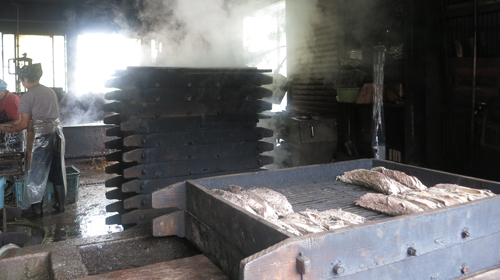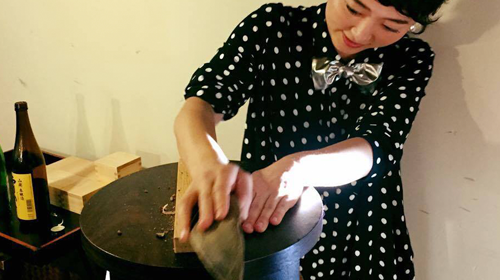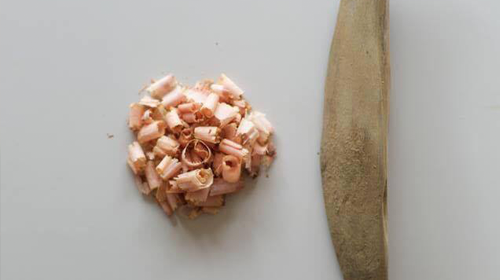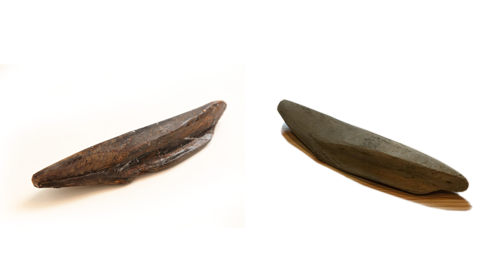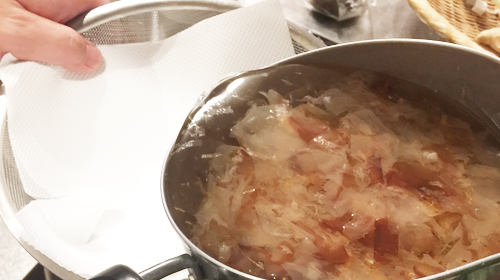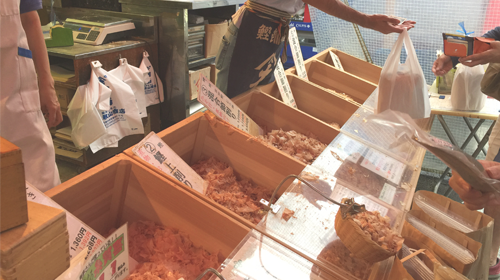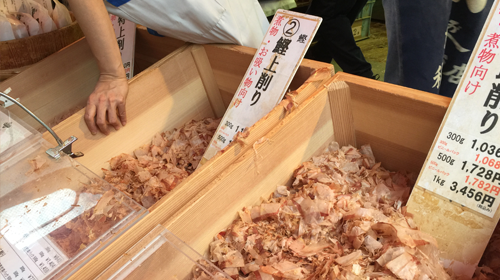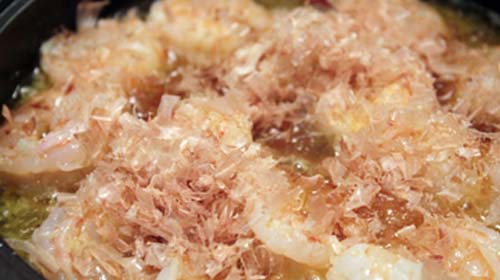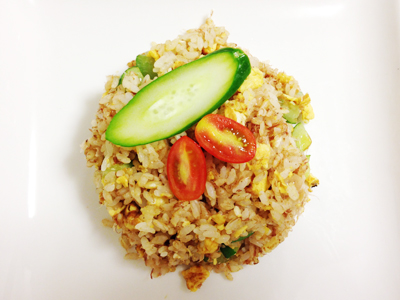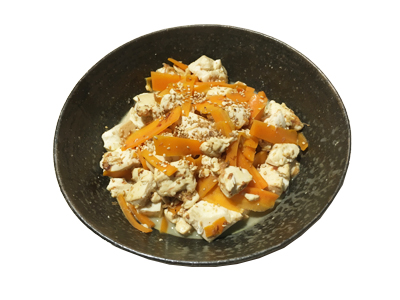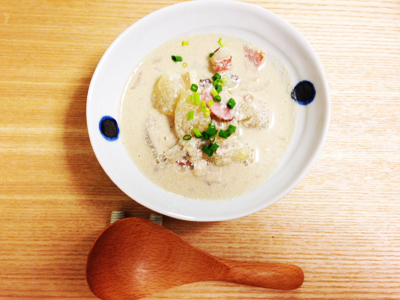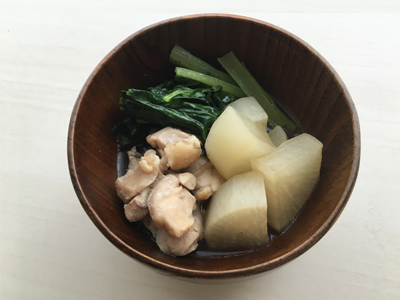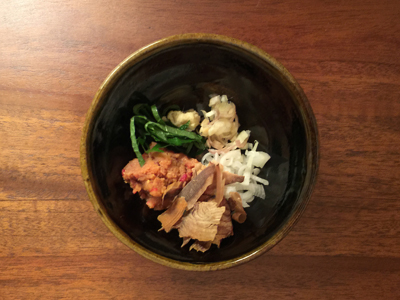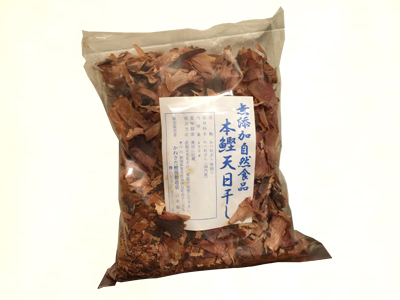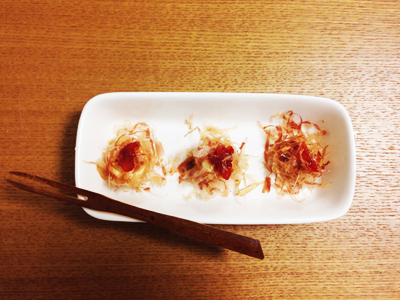It takes about four months to make a block of katsuobushi through the astonishingly labor-intensive and unthinkably time-consuming steps of the traditional processes. We followed the process, from landing a skipjack tuna to serving a dish on a kitchen table. We were shocked to learn that virtually every step is done by hand. Who would have thought this everyday staple had such a long journey to our kitchens?
Read MoreWa-kuu Chapter 1:
Katsuo bushi: bonito flakes
To master the preparation of Japanese cuisine, the first step starts with bonito-flakes.
Dashi causes that aroma floating in the air when stepping into a small Japanese restaurant. The secret of the aroma that gives a feeling of nostalgia and peace is the dashi broth. The core ingredient of such broth is the bonito flakes. In the world, there are a number of varieties of broths, such as bouillon and tang, and among them, bonito flakes are said to be the broth which takes the most time and effort to prepare. Now, let’s go on a journey to explore the roots of this broth!
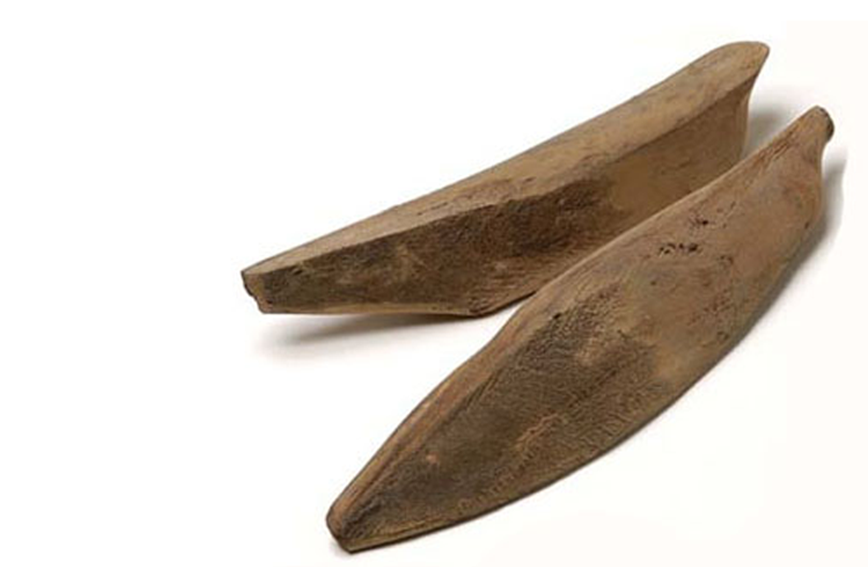
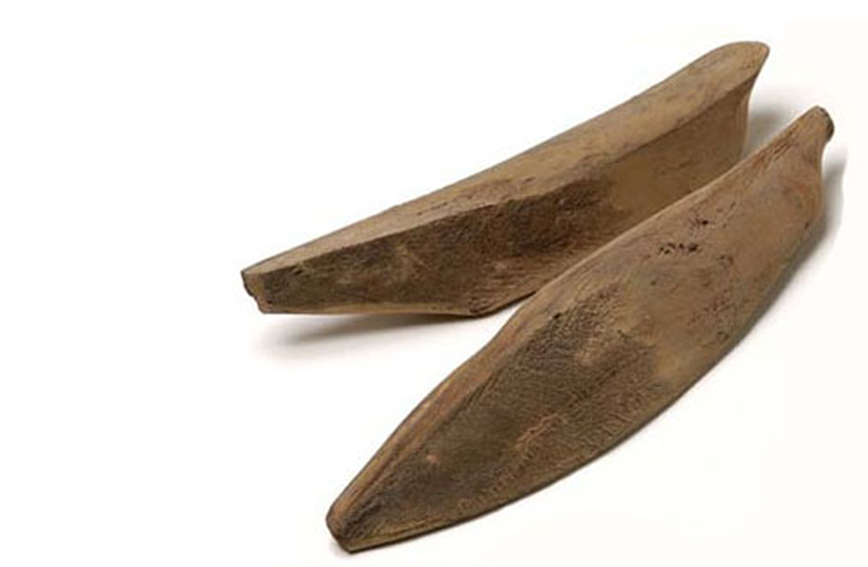
What does “katsuobushi” bring to mind?
Many modern people may associate it with hanakatsuo, dried bonito flakes that come in small vacuum-sealed packages. The word katsuobushi originally meant a crescent block of dried bonito. In the past, people used a special instrument, similar to a wood-working plane, to make shavings from the block. These shavings were used as a condiment and to make fish broth.
Swish, swish, swish… Have you ever shaved katsuobushi? Katsuobushi is often associated with neko mamma (rice topped with bonito flakes) or okonomiyaki (Japanese style savory pancakes containing meat, seafood or vegetables), where the katsuobushi ‘dances’ on the top of these dishes. However, it wasn’t long ago when every Japanese household had a block of katsuobushi that they shaved before each meal.
Read MoreThere are roughly two types of katsuobushi.
Arabushi
This type of katsuobushi is fermented with mold, and is less dry compared to karebushi. It has a distinct smoky scent. Its flavor retains a fish-like smell, yet it is light in body. When preparing dashi, karebushi and honkarebushi are favored in the Kanto area, while arabushi (Hanakatsuo) is common in the Kansai area.
Contrary to common belief, “preparing dashi” is surprisingly easy - it only takes about 5 minutes to complete the entire process. Since this 5 minute process makes meals tastier and more nutritious, why not try it yourself? It is so delicious that you will enjoy preparing dashi.
Read MoreYou can find katsuobushi in almost any grocery store in Japan, but if you want to taste the flavor of katsuobushi, visit a katsuobushi specialty shop.
Read MoreLorem ipsum dolor sit amet, consectetur adipisicing elit. Ratione, voluptatem, dolorem animi nisi autem blanditiis enim culpa reiciendis et explicabo tenetur!
Read MoreThe 2nd prize winner of the Yamaki Katsuobushi Recipe Contest.This is a popular Spanish dish that incorporates olive oil and garlic, but now with a Japanese twist! Serve it hot to maximize the fusion of Spanish and Japanese flavors.
Read More"8" Recipe
The bonito-flake recipes that the “Wakuu Chapter” editorial team recommends are delicious and simple and can easily be cooked at home.Katsuobushi Okaka (Dried Fermented and Smoked Bonito Flakes
Katsuobushi (Bonito flakes) and Cucumber Fried Rice (one serving)
Braised Carrots and Tofu (Bean Curd) (two servings)
Soy Milk Flavored Bonito Broth with Tougan, a White Gourd Soup
Simmered Chicken and Daikon; Japanese White Radish
Kachuyu; Bonito flakes and Miso in Hot Water
Cream Cheese covered with Bonito Flakes

Mai Wan (my bowl)
Cooking expert – Hiroko Takiguchi
No.001
Lacquer Bowl Artist: Mr. Atsuo Yamagishi, from Sabae in Fukui Prefecture
“I met my bowl at a gallery called “Nanoriumu” in Fujiyoshida. I was attracted to the simple form as well as its easy-to use size. I have been using it for almost three years.Since the color is black, this bowl can be used for both Japanese and Western dishes and lately, I have only been using this bowl.”
Ms. Takiguchi’s my bowl recipeSharing Washoku Recipes
Please share washoku ingredients and healthy washoku recipes you recommend."Upload your photo and recipe onto Instagram using the hashtag "#wa_kuu”.



